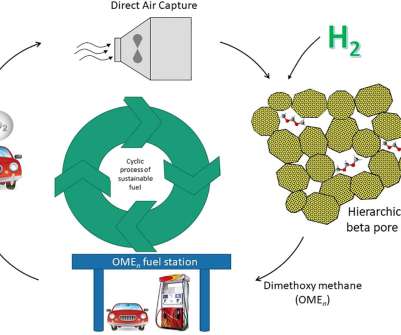DHL, Shell and Grundfos Bio-LNG pilot for road freight delivers 85% CO2 savings over conventional diesel
Green Car Congress
NOVEMBER 17, 2021
This corresponds to the emissions of more than 89,900 km driven by a diesel truck and represents 85% of CO2 savings compared to a traditional diesel engine. The logistics industry is currently responsible for 11 percent of global carbon emissions. The Bio-LNG used by Shell in the test is produced from agricultural waste.















Let's personalize your content